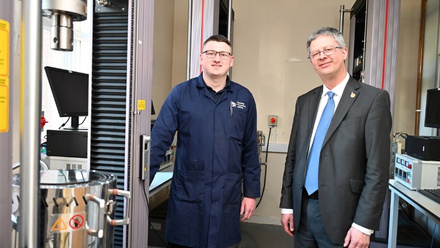EAC urges UK Government to curb deforestation
The UK's Environmental Audit Committee (EAC) has warned that the national appetite for commodities including soy, cocoa, palm oil, beef and leather are putting enormous pressure on forests.

The intensity of UK consumption on the world’s forests – its footprint per tonne of product consumed – is reportedly higher than that of China.
The EAC is calling on Ministers to develop a Global Footprint Indicator to demonstrate this impact to the public, and a target to reduce the UK’s impact on global deforestation.
To help ensure these are meaningful, with associated monitoring, the EAC recommends that the government work with international partners to improve oversight in the UK and globally.
Through legislative provision in the Environment Act, the government has committed to establishing a regime to require forest-based commodities to be certified as ‘sustainable’ if they are to be sold into UK markets.
At COP28, the government announced that the first four of these commodities are to be cattle products (other than dairy), cocoa, palm oil and soy, which the EAC welcomed.
However, the EAC is concerned over the seeming lack of urgency about the implementation of this regime, given global commitments to halt and reverse current deforestation trends by 2030. For instance, no timeline has been offered as to when this important legislation will be introduced.
The EAC also recommends the government should bring other forest-risk commodities, such as maize, rubber and coffee, into the certification regime as soon as possible.
The Committee recommends that the government strengthens the existing legislative framework to prohibit financial sector businesses from trading or using commodities linked to deforestation.
The government has announced large sums for programmes on climate and nature, amounting most recently to £11.6bln with £1.5bln earmarked for deforestation. However, the Committee has heard concerns that there is a lack of transparency over how this investment will be spent. The Committee is therefore calling for clarity from Ministers as to how the money will be used to support activities to halt and reverse deforestation.
To fulfil its commitment to put environmental sustainability measures at the heart of global production and trade, the government must ensure that biodiversity considerations are more consistently applied into its trade agreements and operations.
The EAC therefore repeats its earlier calls for sustainability impact assessments to be conducted for all future trade agreements. Ministers must also develop strategies to monitor effectively and deliver environmental net gains in the UK’s international activity, including gains through halting and reversing deforestation.
Environmental Audit Committee Chair, Rt Hon Philip Dunne MP, says, ‘UK consumption is having an unsustainable impact on the planet at the current rate. UK markets must not be flooded with products that threaten the world’s forests, the people whose livelihoods rely on them and the precious ecosystems that call them home…
‘The Government’s ambition and stated commitment at COP26 to halt deforestation by 2030 was very welcome: but it is not on track now.’







